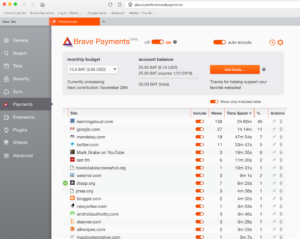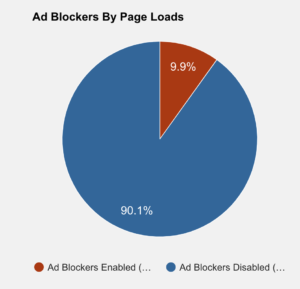Apple CEO Tim Cook recently made the news for all by calling out other technology companies over data privacy. My immediate reaction to Apple talking about privacy is that this is an easy issue for them because they make their money selling hardware at inflated prices. However, concerns over privacy are very real and have created dangerous personal challenges and challenges to industries and national security.
The multifaceted nature of digital privacy makes the topic challenging to discuss. At one extreme, you have issues of espionage that involve stealing corporate secrets and attempts to manipulate elections. Somewhere in the middle, you have personal vulnerabilities involving issues such as stolen information because of negligence exemplified by things like users using common passwords across multiple services. Perhaps at the end of the continuum you might position issues such as services that rely on ads using personal information gleaned from cookies to use the record of your behavior to target you with ads and perhaps in the most negative case to share this information for profit with other companies. It is really this final category that Apple sees as an advantage as the rest of the continuum is hardware neutral.
Here is what I describe as the “elephant in the privacy room” problem. What I mean by this is that we are all complicit in this problem and ignore our involvement. We want what we want for free and refuse to have the empathy to recognize that companies that provide these services must pay their people, pay for their infrastructure, and provide a return to their stock holders. I would also argue that efforts to ignore the elephant by active tactics such as blocking ads (and data collection) are unethical. We somehow justify finding a way to make a service free by refusing to participate in the business model supporting those who create content and “free” online services. While it is true that ad supported services have become greedy (I see a difference between using information to target ads these companies provide and selling the information used to do so to other parties), using the greed of these companies as an explanation for flawed personal behavior is just a way to sooth personal guilt. I would suggest that there are open source alternatives to Facebook and Twitter that contain no ads and collect no personal data (Diaspora and Mastodon), but I am guessing that if you block ads and are aware of these alternatives, you will still not use the more popular services.
Before I offer alternatives, let me make one more point. Collection and sale of personal data does not end with Google, Facebook, and Twitter. Your ISP as a function of the FCC removal of net neutrality protections can sell the record of your online behavior. The ISP knows the sites you visit whether you use an Apple product or a Chromebook. You are far more vulnerable in this way because the record of all of your online activity rather than just your activity through separate services would be known.
I believe in controlled capitalism (unlike some Republicans). From this perspective, I see that something has to change if we expect quality online experiences and assume these experiences will be available without a viable revenue model for content and service providers. I believe the government may legislate privacy protections, but I don’t see these controls will be sufficient to solve the long-term issue of a reasonable return on the investment of providers. I
Suggestions and my own present activity:
- View services and content allowing adds. I use Chrome when I browse and view adds. I do use an extension that blocks 3rd party cookies. These cookies move information from site to site. I feel no obligation to provide information to service X based on what I do when using service Y.
2. Use a service that blocks ads, but provides micropayments to subsidize the cost of providing these services and content. This may be a new concept for you and I admit that the process has yet to achieve much attention. I first tried Brave in 2016 and am now using it again in 2018. I explain Brave in another post. I have invested $50 and plan to spend about $5 a month. This is an experiment for me and my reasoning is that if everyone did this the income provided would be reasonable. Some of my reasoning is based on my experiences with ads on my own sites. I am guessing I earn $15-$20 a year for the thousands of pages I provide. The activity on the sites that support infrastructure and employees if far higher. My revenue per view may be much smaller than you expected. I use Google ads which generate revenue only when actually clicked and the vast majority of ad presentations even when viewed are not clicked. I position is that this click through rate presently supports the Internet and my responsibility for an alternative should be consistent.
Brave takes the money you commit and returns it to providers in proportion to the time you spend on various sites. What follows is the time distribution I generated for my first month of use. My largest investment of time is in writing my own blogs so I would be returning some of my investment to myself.
Brave is somewhat limited at this point because my account is tied only to my desktop computer and cannot synch my activity from my phone, tablets, or laptops. I mostly write on my desktop and this is the reason my blog site is active for the most time in my payment commitments. Brave runs on all platforms, but has yet to implement a way to synch your activity to a single payment plan. I use Chrome and view ads on my other devices.
One more thing, I run a tool on one of my blogs just to gain some insight into how commonly my readers block the ads on this blog. The service would allow me to prevent those with an ad blocker from viewing the content I generate, but I do this more to investigate this user decision.
3. Use open source services (see above) should you not want to see ads or provide micropayments.
My guess is that in the long term things will work differently. If the micropayment model gains some traction, at some point it will morph into the type of subscription model that now supports online music. This might be a different way to understand how Brave works with the exception that you commit what you want to Brave. With a traditional subscription model, all will pay a fee for access and will be allowed to access the content and services that the subscription supports. Ad supported sites will continue to exist and if the ads are used as a business model by the provider, the provider will block browsers running ad blockers. Perhaps the subscription model and the ad model will operate in tandem with the subscription service allowed to block the ads. Google uses a system something like this blocking ads on YouTube for those paying for Google Music. Finally, the government will begin to set standards for user privacy and will eliminate the collection of certain categories of information. Third party cookies and the sale of data from one company to another will not be allowed.
![]()


You must be logged in to post a comment.